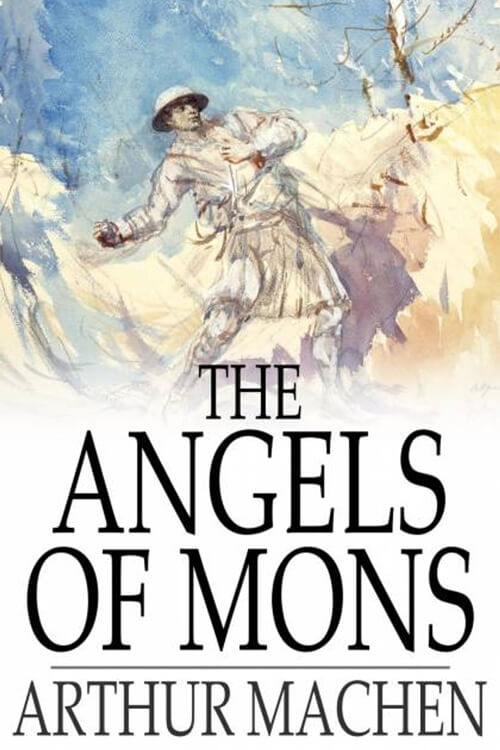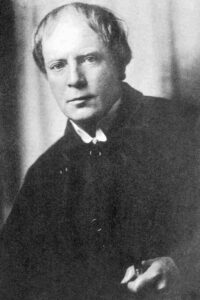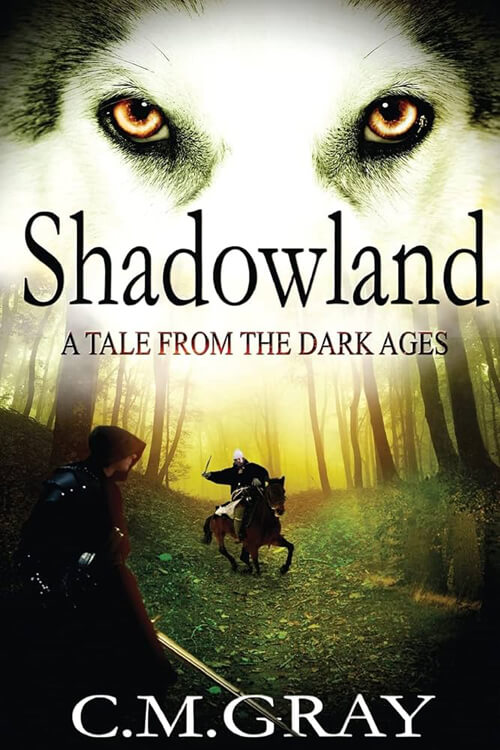
The Angels of Mons, The Bowmen and Other Legends of the War
It was during the Retreat of the Eighty Thousand, and the authority of the Censorship is a sufficient excuse for not being more explicit. But it was on the most awful day of that awful time, on the day when ruin and disaster came so near that their shadow fell over London far away; and, without any certain news, the hearts of men failed within them and grew faint; as if the agony of the army in the battlefield had entered into their souls.
On this dreadful day, then, when three hundred thousand men in arms with all their artillery swelled like a flood against the little English company, there was one point above all other points in our battle line that was for a time in awful danger, not merely of defeat, but of utter annihilation. With the permission of the Censorship and of the military expert, this corner may, perhaps, be described as a salient, and if this angle were crushed and broken, then the English force as a whole would be shattered, the Allied left would be turned, and Sedan would inevitably follow.
All the morning the German guns had thundered and shrieked against this corner, and against the thousand or so men who held it. The men joked at the shells, found funny names for them, had bets about them, and greeted them with scraps of music-hall songs. But the shells came on and burst, and tore good Englishmen limb from limb, and tore brother from brother, and as the heat of the day increased so did the fury of that terrific cannonade. There was no help, it seemed. The English artillery was good, but there was not nearly enough of it; it was being steadily battered into scrap iron.
There comes a moment in a storm at sea when people say to one another, “It is at its worst; it can blow no harder,” and then there is a blast ten times more fierce than any before it. So it was in these British trenches.
There were no stouter hearts in the whole world than the hearts of these men, but even they were appalled as this seven-times-heated hell of the German cannonade fell upon them and overwhelmed them and destroyed them. And at this very moment, they saw from their trenches that a tremendous host was moving against their lines. Five hundred of the thousand remained, and as far as they could see the German infantry was pressing on against them, column upon column, a grey world of men, ten thousand of them, as it appeared afterward.
Read or download Book
Arthur Machen
Arthur Machen (3 March 1863 – 15 December 1947) was the pen-name of Arthur Llewellyn Jones, a Welsh author and mystic of the 1890s and early 20th century.
Biography.
He is best known for his influential supernatural, fantasy, and horror fiction. His novella The Great God Pan (1890; 1894) has garnered a reputation as a classic of horror, with Stephen King describing it as “Maybe the best [horror story] in the English language.” He is also well known for “The Bowmen,” a short story widely read as fact, creating the legend of the Angels of Mons. Machen was born Arthur Llewelyn Jones in Caerleon, Monmouthshire. The house of his birth, opposite the Olde Bull Inn in The Square at Caerleon, is adjacent to today’s Priory Hotel, marked with a commemorative blue plaque. The beautiful landscape of Monmouthshire (which he usually referred to by the name of the medieval Welsh kingdom, Gwent), with its associations with Celtic, Roman, and medieval history, made a powerful impression on him, and his love of it is at the heart of many of his works. Machen was descended from a long line of clergymen, the family originating in Carmarthenshire.
In 1864, when Machen was two, his father, John Edward Jones, became vicar of the parish of Llanddewi Fach with Llandegveth, about five miles north of Caerleon, and Machen was brought up at the rectory there. Jones had adopted his wife’s maiden name, Machen, to inherit a legacy, legally becoming “Jones-Machen”; his son was baptized under that name and later used a shortened version of his full name, Arthur Machen, as a pen name. Local historian and folklorist Fred Hando traces Machen’s interest in the occult to a volume of Household Words in his father’s rectory library, in which he read a captivating article on alchemy at the age of eight. Hando recounts Machen’s other early reading: He bought De Quincey’s Confessions of an English Opium-Eater at Pontypool Road Railway Station, The Arabian Nights at Hereford Railway Station, and borrowed Don Quixote from Mrs. Gwyn, of Llanfrechfa Rectory. In his father’s library, he also found the Waverley Novels, a three-volume edition of the Glossary of Gothic Architecture, and an early volume of Tennyson.






